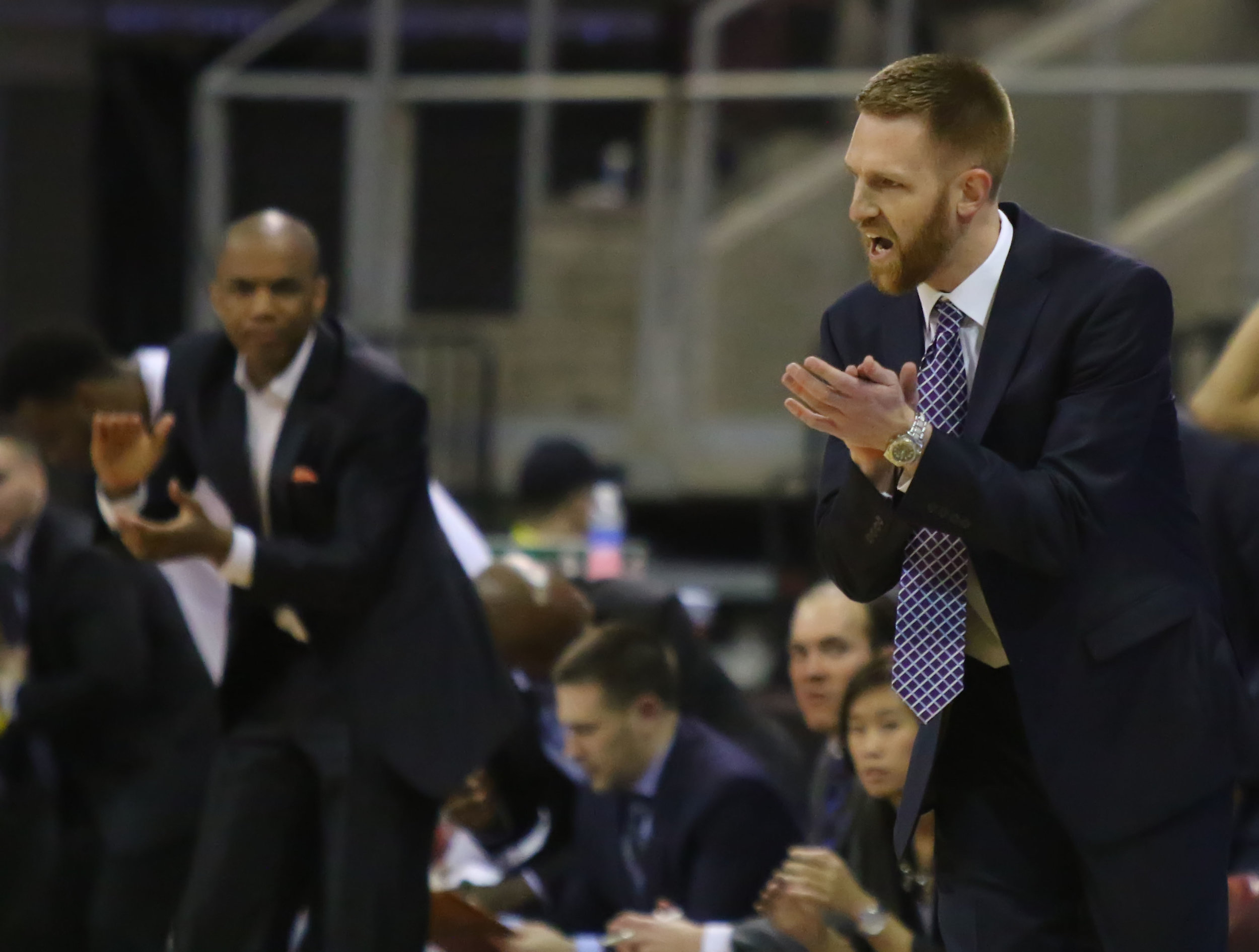First of all, let me applaud you, Coach. The work you do, if done well, can have as big of an impact on a person as anything else in their lives. No matter what level you coach or what sport you coach, you get to connect with ambitious people on something that's important to them and shapes who they become.
It's important work. But we both know it's really difficult work.
Coaching can be one of the most difficult professions to succeed in.
The patience is thin. Everyone thinks they can do it. The pressure to win is at an all-time high. And your success/failure record is plastered for everyone to see.
And we all know, when it comes to winning and losing, if you don't have enough talent you're probably not going to win anyway. (Pro tip: Don't make that excuse to the GM. It won't help you.)
We all start coaching with good intentions. We really do want to help people succeed. We intend to stick to the plan and trust the process.
But then losses start accumulating. And people get frustrated. Parents and fans start voicing their disagreement. Management second-guesses our decisions and gives input that feels like micromanaging. The external pressure mounts.
And so does the internal pressure. You're a good coach. And you know you're a good coach. You just need some victories to prove it to everyone else and get them off your back. So you devise a plan. Maybe you don't shortcut the process, but you put it on hold to buy yourself some more time.
But the process is what they really needed to succeed longterm. All you have done is set up a facade with temporary success. Eventually it wears off. Everyone returns to the baseline they were trained for. The losses return. You are seen as a fraud and they stop listening.
More intensity won't help. More clarity will.
Our team was in a rut. 9 straight losses. The players weren't hearing what we were teaching and they weren't getting better. We were stuck.
We tried a dozen different solutions.
More video. Critical video. Positive video. Video of other teams.
Different terminology.
More drills. Less drills.
More playing. Days off.
Nothing worked.
We didn't need more intensity. We needed more clarity.
So I interviewed a small group of the players to find out the answer to one question: "What is it like to play for our team?"
Taking into account their teammates, how they are coached, the system we play, the expectations we put on them, our practice schedule and daily itinerary. What is the experience like in our program?
By approaching them in a non-threatening way, they revealed a lot. Players will be honest with you when they know it's safe.
And so we adjusted based on what we heard. Things didn't change overnight, but slowly we re-tilled the soil of our learning environment.
They started to get better again. And the energy source of our team, he started smiling again (and posting consistent double-doubles).
From 1957 to 1966 the Boston Celtics won 9 NBA championships, coached by hall of famer Red Auerbach. The team was led by another hall of famer, Bill Russell, considered one of the greatest basketball players of all time. Russell once said that the most amazing thing about their Celtics dynasty was that they listened to Red for 10 years!
You can be the next Red Auerbach.
Not by proving how much you know.
Not by forcing your will onto the season.
Not by making the players fit your schemes.
Not by having more resources than any of your competition.
You will do it by learning how to tap into the unique desires of each member of your team.
By positioning them to shine their best gifts.
By being secure enough to get out of the way.
By engaging your team where they are, not where you want them to be.
It is really hard to make it through a season without hating some or all of your team.
But it doesn't have to be that way.
You can be Red Auerbach with your players listening to you for a lifetime.
We coaches like to play chess.
Passing the whiteboard back and forth, trading counter attacks. But...
Our athletes aren’t chess pieces.
They are people.
With emotions. With desires. With fears. With insecurities.
We didn’t sign up to coach all these dynamics!
Except that’s what we get. So we need to learn to navigate all the layers of the onion.
You know about the agents and the moms and the girlfriends who are pulling their focus a dozen different ways.
But do you know about the internal factors that deafen their ability to hear your voice?
Do you know about the fears that cause them to seize up in the moment you need them the most?
Or the distractions that fog up your huddles?
Your plan is being manipulated by unseen forces.
You don't have to be some sort of mystic to recognize them or work with them.
You just need a lens to see them and a few soft skills to get everyone performing like you imagined them at the drawing board.
It's time to coach, not just strategize.
It's time to calm the frustrations you feel and get clarity about who you are coaching.
It's time to get their attention - and keep it - so you can take them to new heights.
I have identified 8 personalities you are likely dealing with on your team. When they don't listen to you, it's not because they are ignorant or negligent. Most likely, they are blocked up by agendas that are hidden even to themselves! Fill out the form below and we will email you a free download with insight into who you're dealing with and a pathway to leading them with care and wisdom.

